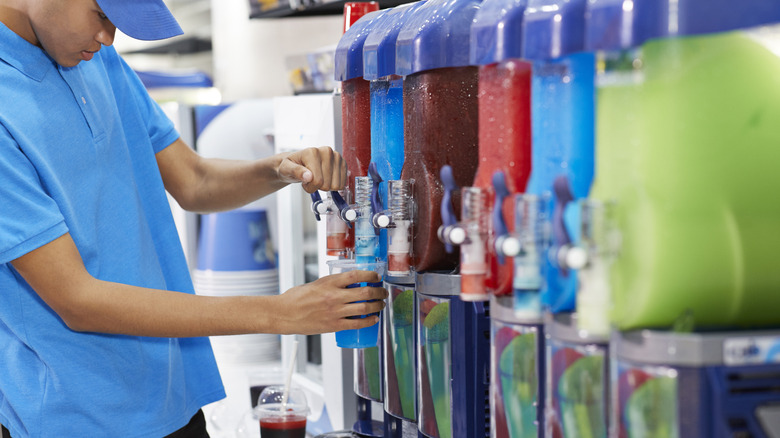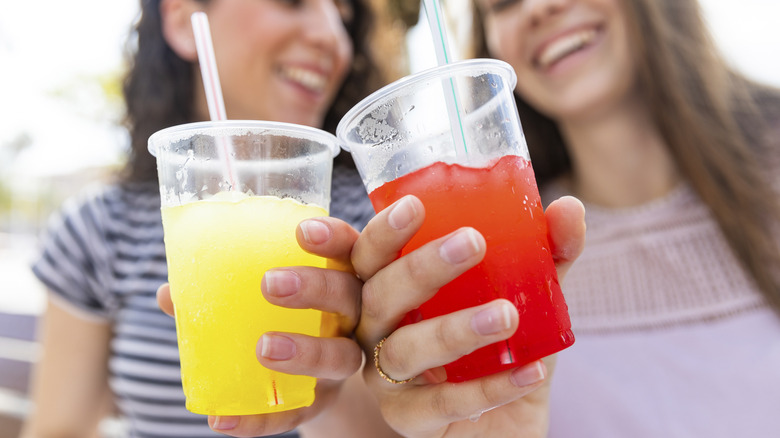The Stomach-Churning Reason You Might Want To Skip Gas Station Slushies This Summer
We should not, as a nation, grow accustomed to pairing the words "gas station" and "dining option." Food is sold at gas stations, to be sure, but that doesn't necessarily mean you should buy it there. Some swear that a good hot dog can be found at gas station chains while others proclaim the end of gas station food's bad reputation. But no matter what kind of suit you use to dress it up, gas station food is still sold where unleaded and diesel are the focus, not freshness or mouth feel.
If gas station food is a necessity, it's safer to go with pre-packaged snacks and road trip food since these items have a longer shelf life and can withstand irregular turnover. However, the list of items you should never buy at a gas station is long and includes items like produce and sushi. Both require careful preparation and handling to prevent spoilage — something which is in short supply at even the fanciest gas station.
More recently, slushies have been added to the do-not-consume list. At first blush, slushies seem like a safe bet since they're simply filtered water, flavored syrup, additives, and carbon dioxide. However, health departments have discovered people becoming ill after consuming gas and convenient store slushies. The problem in these cases wasn't the slushy mix, but rather proper cleaning of the slushy machines. Go ahead and say it if it helps: gross.
Why people get sick from gas station slushies
According to health inspection records, some gas station owners are only cleaning the slushy machine with water (the proper method is to flush the machine with water and detergent weekly and then lubricate and scrub the interior) or leaving slush in the machine overnight.
What sort of microbial monster flourishes in slushy machines? The most common culprit is pink mold (Serratia marcescens) which gets its unsavory name from its appearance — pink or red-colored slime. Pink mold thrives in moist environments like toilets, sinks, and yes, drink dispensers. If consumed, pink mold can cause gastrointestinal issues, urinary tract infections, and pneumonia.
So the solution is simple, you say. Buy slushies only from gas stations that regularly clean their machines. But slushy machine maintenance, while required by the USDA and FDA, falls on employees who are busy with other gas station tasks and poorly incentivized to put in more effort than absolutely necessary. Health inspectors (who are responsible for more than 145,000 gas stations in the United States in addition to restaurants, supermarkets, and pet stores) are also ill-equipped to handle such a minute detail at scale. Which means safety ultimately falls to the consumer, who must ask themselves whether the risk is worth it.

